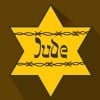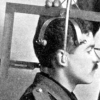Editor’s Note: Rabbi Yossi Lew, assistant rabbi of Chabad-Lubavitch of Georgia, accompanied the Atlanta delegation on this year’s March of the Living, a tour of Jewish communities and concentration camps in Poland, followed by a week in Israel, for high school students. As he’s done in year’s past, Lew provided rabbinical guidance on the trip. He wrote a diary about his experiences and those on his bus, as they came to terms with the horrible reality that was the Holocaust. This is the third of several installments.
May 3, Shabbat in Krakow
Shabbat is a special day. It was, after all, designed that way by the Almighty.
What makes Shabbat so special? The world itself does not seem any more special; the sun comes up the same way, the birds wake up at the same time, and the squirrels seem to scurry up the same trees as any other day. The world continues on its merry way. What is so different about Shabbat?
The difference, of course, is in how you approach Shabbat. It is designed for a person to focus upon, and enjoy, the three most important things in his or her life: G‑d, family and community. The rest of the world outside of these three stops for the 24 hours of Shabbat.
We, therefore, spend more time at the synagogue with G‑d and our community. Lavish meals at home, or with neighbors, allow for extra built-in family time.
Relaxing in this type of atmosphere creates a true day of rest and elevation.
Our Shabbat in Krakow, however, was even more special. The city has a special energy all its own any other day of the week, but on Shabbat, its Jewish character enlivened all 30 of us.
We awoke earlier than the rest of the group and walked the three miles to the Rema synagogue. The opportunity to pray in that synagogue, and with local Jews, was incredible.
Following morning services, we continued on to the Isaac synagogue, the new home of Chabad-Lubavitch of Krakow. Our lunch featured the standard fare of challah, gefilte fish, salads, cholent and kugel. The singing during the meal was electric. People passing by the windows of the synagogue lingered on the notes and began to dance with the sound of our voices.
To think, all of this was in Krakow of all places. Six decades ago, the Jewish community was wiped out.
In the words of Rabbi Eliezer Gurary, director of Chabad-Lubavitch of Krakow, may the energy and spirit of this meal be a catalyst to more energy and light in our lives, as we soon return to our homes and communities.
May 4, Choking Up in Majdanek

We have been on this bus for more than four hours. Our time in Poland coincides with the holiday of May Day, so to avoid the traffic, our bus is taking the back roads.
We’ve bounced around on the dirt and the mud, seemingly experiencing every narrow lane of Poland’s beautiful remote areas. It’s taken us twice as long as it normally would to get anywhere.
Being on the bus for so many hours is stifling. Come to think of it, almost our whole experience in Poland has felt as though we were being choked. We’re almost done with the Eastern European part of our tour, and we simply cannot take much more of this.
Today was really tough. No, today was terrible. In a week that has already been tough, today was awful and dreadful.
Today, we were in the death camp Majdanek (pronounced: MY-DAN-ek). This camp, right in the city of Lublin, was left standing just as it was when the Nazis abandoned it. It is all there, standing silently for some 65 years now.
Its silent screams are enough to choke anyone up.
This camp hits you harder and tougher than any other. It chokes the kishkes out of you, it robs your mind of any common sense. Its horror is truly incomprehensible.
It was most apropos that upon our entry to the camp, hard rain together with hard pieces of hail hit us with ferocity.
A little down a path is a barrack with bins filled with tens of thousands of shoes taken from Majdanek’s victims. These shoes can be touched by anyone who visits, bringing the horrors of the Holocaust into the physical reality. The stench of leather is this barrack is overpowering.
More shoes.
And then there are the ovens, resting in a cold, dark and ominous barrack. The ashes of its victims are still there. An eerie silence prevails, broken only by the muffled sounds of sobbing.
The mausoleum, though, is worse. Here, seven tons of ashes stand heaped in a pile, exactly the way the Soviet army found them. These ashes of burnt human bodies would have been mixed with earth and sold as fertilizer to spread on the fields outside.
Jewish people – men, women and children – were murdered with Zyklon B, a fertilizing agent, and here were turned into fertilizer. Little bits of bone can be seen among this holy pile, that is if you can see through the tears in your eyes.
The students of our bus were utterly shaken to the core. From the words they chose to share with us, it is clear that many of the students really “got it” here.
But now, after the many stifling hours of visiting camp after camp, the students realize that we are heading to the Land of Israel. We are all so ready for Israel, not just to escape Poland, but to translate all of this pain into something holy.







Start a Discussion